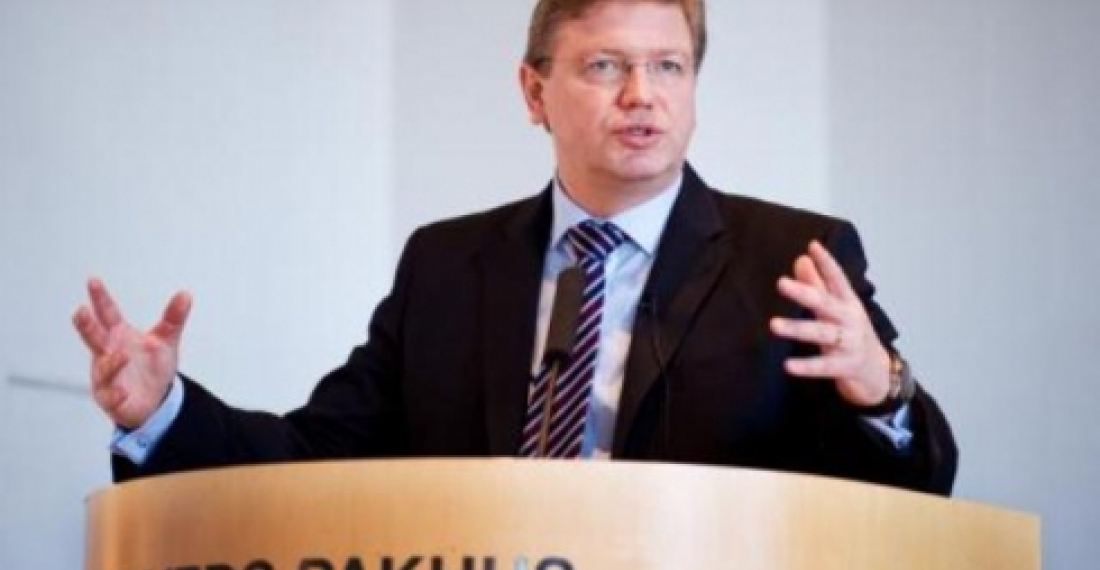Министры иностранных дел шести стран Восточного партнерства встречаются в Ереване в преддверии саммита в Вильнюсе в ноябре. В встрече также принимает участие Комиссар ЕС по вопросам расширения и политики добрососедства Штефан Фюле.
В интерью армянскому информационному агентству Медиамакс Фюле отрицает, что ЕС предварительно был проинформирован о неожиданном заявлении Армении вступить в Таможенный союз и заявил, что ЕС был проинформирован об этом только 31 августа. Фюле также дал понять, что без DCFTA невозможно будет подписать Соглашение об ассоциации. Он сказал:
"Последовательная позиция ЕС заключается в том, что политическая ассоциация и экономическая интеграция должны идти рука об руку, и они являются неотъемлемыми частями Соглашения об ассоциации. Поэтому, мы не можем разделить два этих важнейших составляющих соглашения."
Встречи в Ереване продлятся до конца пятницы. Среди участников встречи заместитель министра иностранных дел Азербайджана Махмуд Мамед Гулиев.
Источник: commonspace.eu по материалам Медиамакс.





